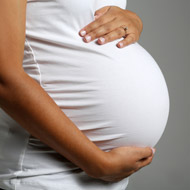
Researchers find Zika virus genome in amniotic fluid samples
A study involving pregnant women in Brazil has 'strengthened' the association between the Zika virus and cases of microcephaly birth defects in babies.
Published in The Lancet, the study found the Zika virus genome in amniotic fluid samples of two pregnant women in Brazil.
Researchers say that the findings suggest the virus can cross the placental barrier. As a result, the virus should be considered 'as a potential infectious agent for human foetuses'.
But World Health organisation (WHO) experts warn that the link is not yet proven. Speaking to BBC News Marie-Paule Kieny, assistant director-general of the WHO said:
"It seems indeed that the link with Zika (and microcephaly) is becoming more and more probable" said Marie-Paule Kieny, assistant director-general of the WHO.
"I think that we need a few more weeks and a few more studies to have this straight," she said.
Brazil has seen a sharp rise in babies born with microcephaly - an infection which can cause abnormally small heads and problems with brain development.
In 2015, the number of babies diagnosed with the disease was 20 times higher than in previous years.
At the same time, cases of the number infected with Zika virus has also risen. This has led to several studies to investigate whether the virus is behind the increase.
In the study, researchers sought to detect and sequence the Zika virus genome in amniotic fluid samples of two pregnant women in Brazil whose foetuses were diagnosed with microcephaly.
Genetic analysis of the fluid detected the Zika virus and discounted similar viruses that may have been responsible.



 The latest
The latest